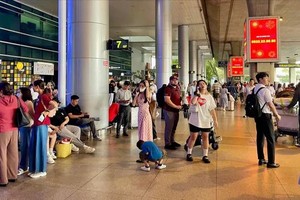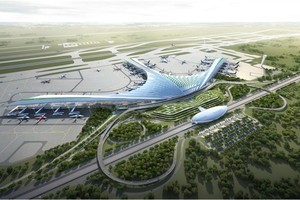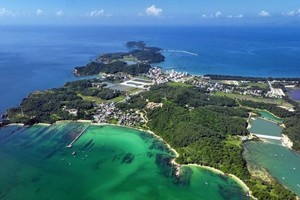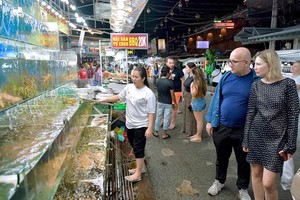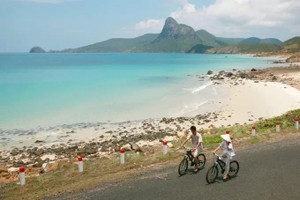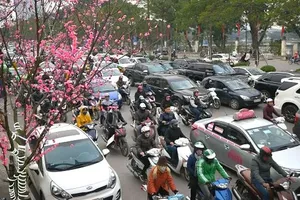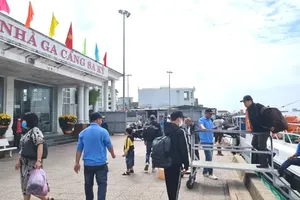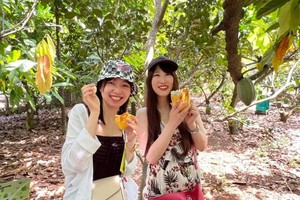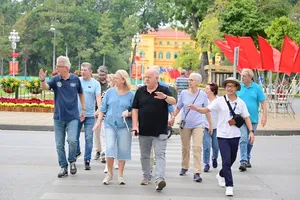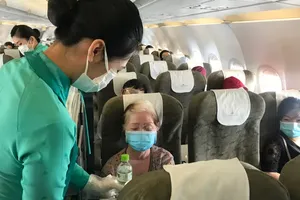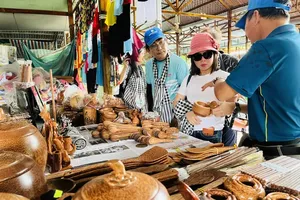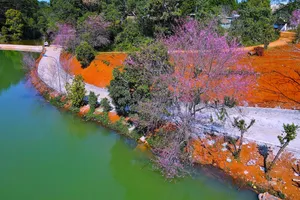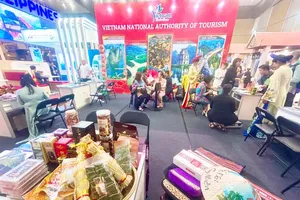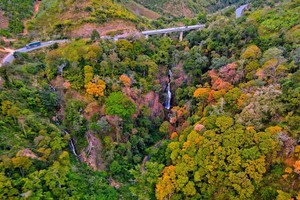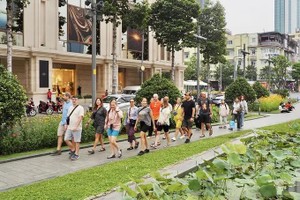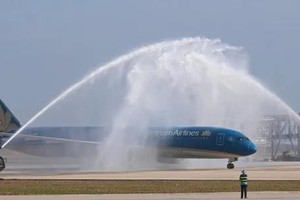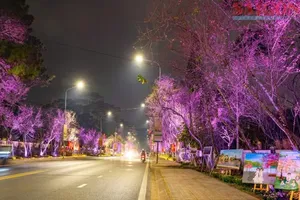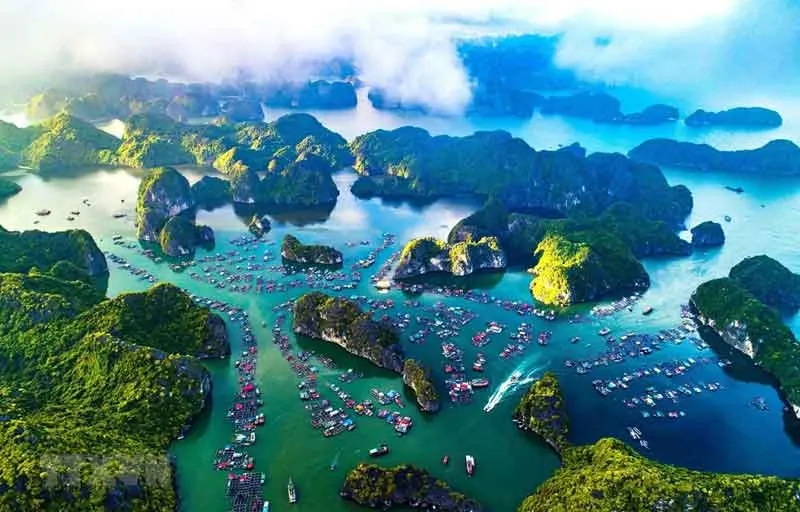
Among the hardest hit by the typhoon, Cat Ba island in Cat Hai District was once left in a calamitous state with blown roofs, collapsed trees and electricity, water and telecom service cuts for days.
Vice Chairman of the district People’s Committee Nguyen Quang Vinh said that under the leadership of the city's leaders, the local administration, people and enterprises have accelerated relief efforts to repair infrastructure and restore power, water and internet services.
To date, all of the local roads have been cleaned up while some 30 percent of restaurants and hotels have resumed their business activities and the figure will increase to 90 percent on October 1, he said.
Pham Truong, investor of M’Gallery, the first five-star hotel on the island, said the hotel has fully recovered from the storm, and will host around 200 European tourists on September 28-29.
Meanwhile, Gia Cat Long hotel and restaurant stands ready to welcome athletes to VTV LPBank International Marathon Fantastic Cat Ba Sunset 2024 scheduled for October 19.
According to Vinh, around 3,000 athletes have registered to join the event, which will be a good opportunity for the tourism sector to bounce back after the typhoon.
In Do Son district, the local administration restarted its tourism activities with the buffalo fighting festival on September 21 or the 19th day of the 8th lunar month instead of the 9th day, as it was affected by the typhoon. The same day, the district also hosted the Miss Tourism Vietnam Global 2024 beauty pageant.
Vice Chairman of the district People’s Committee Pham Hoang Tuan said the events played an important role in shaping up a chain of autumn-winter tourism offerings, making Do Son an attractive four-season destination.
Cat Ba and Do Son are the two localities with the greatest contributions to tourism development in the northern port city.
During the January – September period, Do Son received around 3.5 million tourist arrivals and expects to host 3.8 million visitors this year.
As a small peninsula and district in the southeast of the city, Do Son is renowned for its beaches that attract numerous tourists. In addition to its historical and spiritual sites, the district also offers modern tourist areas with various entertainment options, including the Dragon Hill tourist area that boasts a conference centre, golf course, swimming pool, artificial beach, water park and hotel.
In the meantime, nearly 3 million visitors, including around 810,000 foreigners, made their trips to Cat Ba archipelago, during the nine-month span.
With 367 islands, more than 300 beaches, and a diverse and rich ecosystem, Cat Ba is an alluring destination to both domestic and foreign tourists all year round.
The dramatic landscapes are characterised by limestone cliffs, coral reefs, lagoons, beaches, and mangrove forests. In 2004 UNESCO recognised the archipelago as a World Biosphere Reserve.
Cat Ba has been included in the bucket list of many nature-lovers who wish to explore its variety of natural ecosystems. Particularly, Cat Ba National Park has 4,500 hectares of primeval forest, providing habitat for many rare flora and fauna as well as animals that have been listed in the Red Book of Viet Nam such as langurs, black squirrels or Chittagong wood.
To those keen on exploring bays, islands and caves, they could take one of the many cruise ships sailing along Lan Ha Bay and may even be welcomed by the monkeys, “hospitable” residents of Ca Dua Island that is dubbed as “Monkey Island”.
